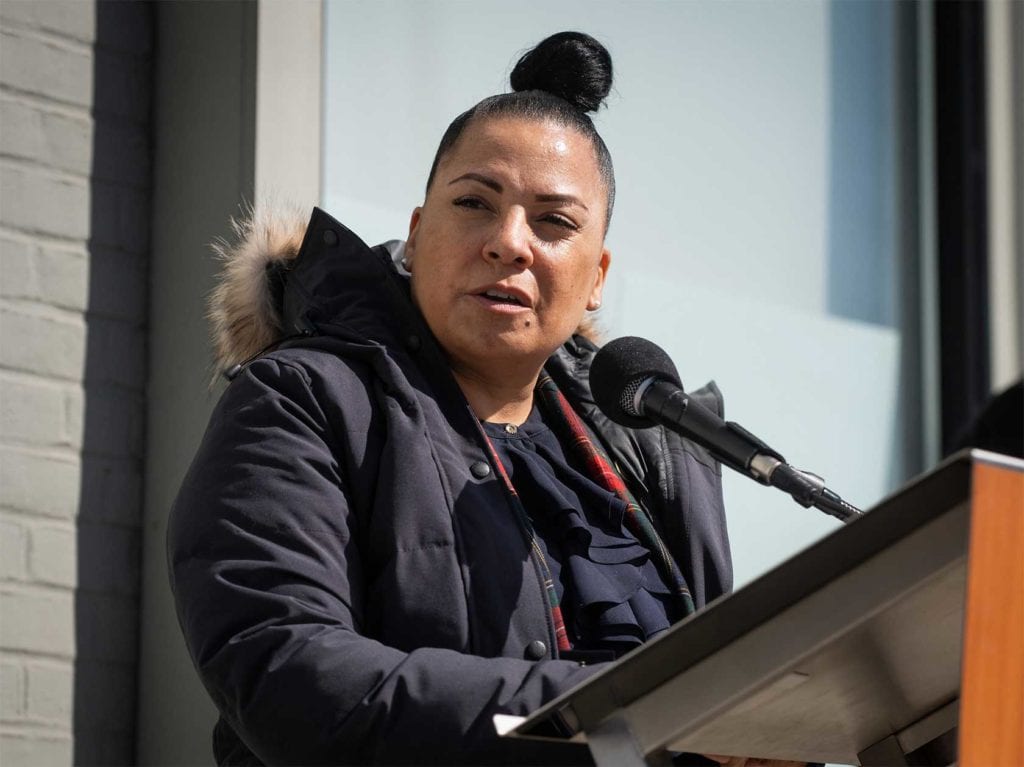Reforms shown to reduce crime
Study finds refusing to prosecute misdemeanors reduces recidivism

New research shows that refusing to prosecute some misdemeanors actually leads to less crime, despite fears that the tactic would increase crime. Suffolk County District Attorney Rachael Rollins was criticized for implementing the strategy in 2019, by local and state public safety officials and other district attorneys.
“This is the first estimate of the causal effects of nonviolent misdemeanor prosecution on defendants’ subsequent criminal justice involvement,” Rollins said in a statement to the Banner.
The analysis, conducted by researchers at Rutgers University, Texas A&M University and New York University, examined 67,533 misdemeanor cases from 2004 to 2018, just before Rollins became district attorney in 2019.
“We find that, for the marginal defendant, non-prosecution of a nonviolent misdemeanor offense leads to large reductions in the likelihood of a new criminal complaint over the next two years,” the report reads.
In Rollins’ policy memo released two years ago with the help of leading experts in the justice system, she made a promise to choose “declination and diversion” whenever possible instead of prosecution, for two reasons: “to reduce the footprint of the criminal justice system where it served no public safety interest, and second, to allocate more of our prosecution resources to the serious offenses that harm people, families, and the community as a whole.”
In her memo, which she first released during her campaign, she identified 15 non-violent offenses, such as larceny or marijuana possession, that could be best addressed through diversion or declined prosecution entirely. According to internal data, they make up over 60% of commonly-charged offenses in Suffolk county.
“In addition to being low level, non-violent offenses with minimal long-term impact, they are most commonly driven by poverty, substance use disorder, mental health issues, trauma histories, housing or food insecurity, and other social problems rather than specific malicious intent,” Rollins wrote.
Instead of being hailed for this practice, after taking office Rollins was asked to meet with Governor Charlie Baker after Public Safety and Security Secretary Thomas Truco sent her a letter asking her to revise the list of offenses. Some criminal defense attorneys, police officers and prosecutors in the county feared the policy would lead to more offenses, without the threat of prosecution there as an incentive for offenders to stop committing crimes.
Rollins maintained that she wanted to save resources for exceptional cases and more violent crimes.
The study was conducted by analyzing data from court cases during the administration of Suffolk County District Attorney Dan Conley, who preceded Rollins. Although Conley did not have a policy of dismissing or diverting low-level misdemeanors, assistant district attorneys had wide latitude to do so. The researchers were able to compare recidivism rates of those who faced criminal prosecution for misdemeanors with those who were not.
The study found that those who committed one of the 15 misdemeanors were 58% less likely to commit another crime within the next two years. Non-prosecution in the initial case “reduces the likelihood of a subsequent misdemeanor complaint by 24 percentage points,” according to the report’s results.
“This is critically important, because these charges most frequently target poor Black and brown communities for enforcement, and too often they have the potential to become misdemeanor murders,” Rollins said, using a term that describes people killed by police over minor infractions.
Though there is no race or gender data included, as demographic data is often not included in the handwritten reports supplied by the county, Rollins has made it clear in her policy that low level, non-violent offenses are often driven by factors that directly affect the Black community, like poverty, housing insecurity, food insecurity and other social causes.
“Eric Garner, George Floyd and Sandra Bland, all of whom were first approached because of allegations of minor misdemeanor-type conduct, all … lost their lives,” she said.






